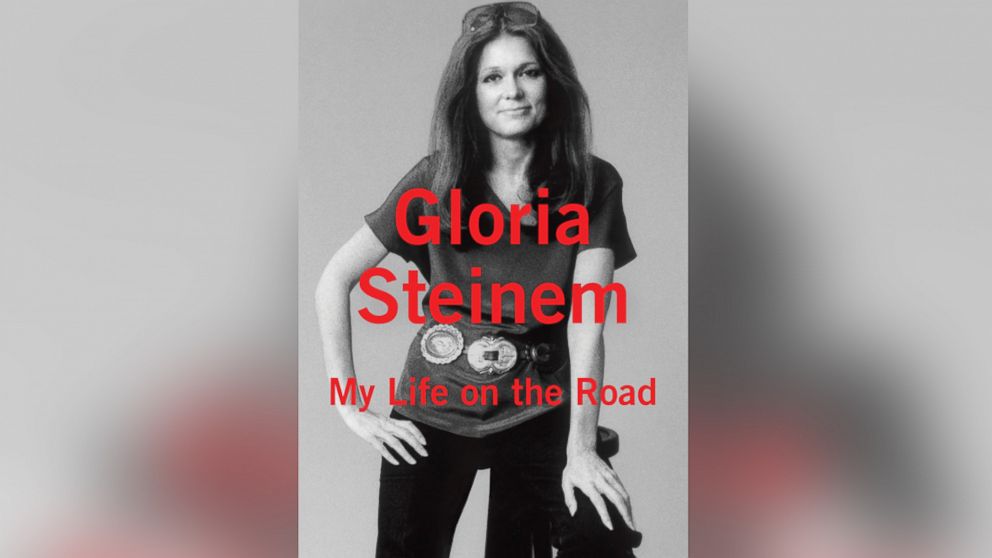Book Excerpt: Gloria Steinem's 'My Life on the Road'

— -- Excerpted from MY LIFE ON THE ROAD by Gloria Steinem. Copyright © 2015 by Gloria Steinem. Reprinted by arrangement with Random House, a division of Penguin Random House LLC. All rights reserved.
Introduction: Road Signs
When people ask me why I still have hope and energy after all these years, I always say: Because I travel. For more than four decades, I’ve spent at least half my time on the road.
I’ve never tried to write about this way of life, not even when I was reporting on people and events along the way. It just seemed to have no category. I wasn’t on a Kerouac road trip, or rebelling before settling down, or even traveling for one cause. At first I was a journalist following stories, then a sometime worker in political campaigns and movements, and most consistently an itinerant feminist organizer. I became a person whose friends and hopes were as spread out as my life. It just felt natural that the one common element in that life was the road.
When friends or reporters assumed that spending so much time away from home was a hardship, I often asked them to travel with me, hoping they would get as hooked as I was. Yet in all these years, only one took me up on it—for just three days.
As decades passed, and the word still entered my life—as in “Oh, you’re still traveling”—it dawned on me that I’d been writing least about what I was doing most.
So I sat down and began to make notes about many trips, past and present, that left me amazed by what is, angered by what isn’t, and hooked on what could be. As I looked through old date books and schedules, letters and abandoned journals, suddenly I was awash in a sense memory of my father going through his tattered road maps and address books, trying to figure out how much gas money he needed to get from here to there, where to find trailer parks that would shelter his wife and two daughters, and what roadside dealers might buy the small antiques which he sold and bartered as we made our way across the country. It was so vivid that I could sense our conspiratorial whispering as we tried not to wake my mother, who was asleep in this house trailer that was our home for most of each year.
Until that moment, I would have sworn that I had rebelled against my father’s way of life. I created a home that I love and can retreat to, though he wanted no home at all. I’ve never borrowed a penny, though he was constantly in debt. I take planes and trains to group adventures, though he would spend a week driving cross-country alone rather than board a plane. Yet in the way that we rebel, only to find ourselves in the midst of the familiar, I realized there was a reason why the road felt like home. It had been exactly that for the evocative first decade of my life. I was my father’s daughter.
I never imagined starting this book with my father’s life. Then I realized I had to.
More discoveries followed. For instance, I always thought of my road life as temporary, assuming that one day I would grow up and settle down. Now I realized that for me, the road was permanent, and settling down was temporary. Traveling had created my nonroad life, not the other way around.
Take public speaking: I spent all of my twenties and early thirties avoiding it. When I once asked a speech teacher about my aversion, she explained that dancers and writers were especially difficult to teach to speak in public, since both had chosen a profession in which they didn’t have to talk—and I had been both.




